
There is a line in Burnt Norton, the first of TS Eliot's poetic cycle The Four Quartets, about humans seeking to be "distracted from distraction by distraction".
With all that is happening in the world (and Brexit is just a small part of it really), it often feels as though we are all going to hell in a handcart - a sentiment which the medievals would have completely sympathised with.

This month has, therefore, been filled with many distractions.
 It began with the Royal Opera's new production of Giacomo Puccini's La bohème. This replaced John Copley's old production (old in the sense that it was first seen on stage in 1974 - I think I remember seeing a BBC broadcast at the time). The forty year old staging was a romantic rendering of the work (complete with a garret the size of a medieval cathedral) but was true to the emotions of the piece.
It began with the Royal Opera's new production of Giacomo Puccini's La bohème. This replaced John Copley's old production (old in the sense that it was first seen on stage in 1974 - I think I remember seeing a BBC broadcast at the time). The forty year old staging was a romantic rendering of the work (complete with a garret the size of a medieval cathedral) but was true to the emotions of the piece.
Unsurprisingly, Richard Jones took a different approach. Although kept in the period of the work's composition (rather than the 1830s of the manuscript), everything was bright, clean and geometrically patterned with sharp contrasts between colours. Whilst it looked handsome and engaging, I don't think that it is a production that will endear itself over as long a period as John Copley's.
Unsurprisingly, Antonio Pappano gave us a finely tuned and impassioned reading of the score. The main quartet of singers Michael Fabiano (Rodolfo), Nicole Car (Mimi), Mariusz Kwiecien (Marcello) and Simona Mihai (Musetta) - all acquitted themselves admirably.
There was an awful lot of frenetically choreographed movement but the piece still brought a lump to the throat in the closing bars.
 Ross and I went to the cinema to see King's Man - The Golden Circle. It didn't have the novelty of the first film but it was still surprisingly good having retained all of the virtues of the original. I laughed a lot and there is a fabulous cameo by Elton John which means Colin may even have to go to the cinema!!
Ross and I went to the cinema to see King's Man - The Golden Circle. It didn't have the novelty of the first film but it was still surprisingly good having retained all of the virtues of the original. I laughed a lot and there is a fabulous cameo by Elton John which means Colin may even have to go to the cinema!!
The new Star Wars trailer is out. Gasp. It's a Porg, by the way.

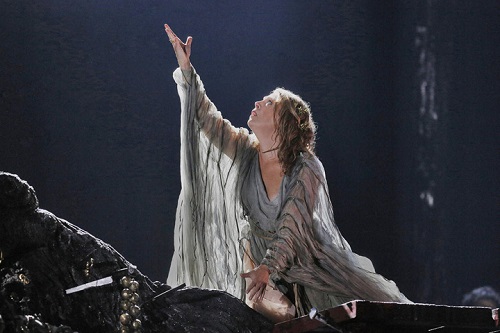 I like Bellini's works when they are taken on their own terms. There is a classical poise about the œuvre which makes the works very easy to unbalance with changes to setting, musical values or appropriate voices.
I like Bellini's works when they are taken on their own terms. There is a classical poise about the œuvre which makes the works very easy to unbalance with changes to setting, musical values or appropriate voices.
The new production by the New York Met cinecast at FACT in Liverpool had, on the face of it, everything going for it. David McVicar keeps his stagings stylistically sensible. Carlo Rizzi has an excellent track record with this corner of the repertoire. The main trio of singers, Sondra Radvanovsky, Joyce DiDonato and Joseph Calleja, are well liked and well thought of.
And, it was beautifully sung.
The downside was that the performance was dramatically and musically inert for most of the evening.
I fell asleep.
Sequels are seldom as good as first films. Godfather II is the one that everyone mentions as being a rule breaker. I think that we may now have to consider admitting Blade Runner 2049 to the pantheon even though the sequel achieved the feat by adopting a totally contrasting aesthetic.
I must confess that I was so excited with anticipation on my way to the cinema with Ross that I did consider resorting to the use of one of Tena's sensible products.
I am still somewhat agog by the whole experience. I was prepared for the sci-fi special effects and the contemplative nature of the plot but I wasn't expecting the whole 2h 43m to be so beautiful to look at.
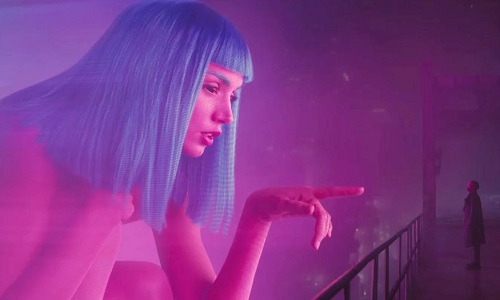
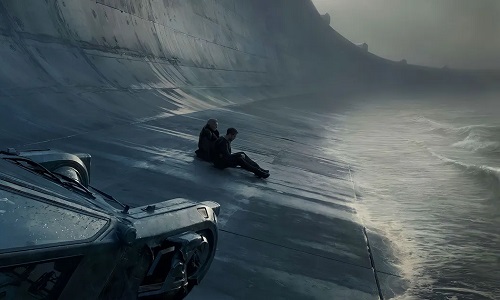

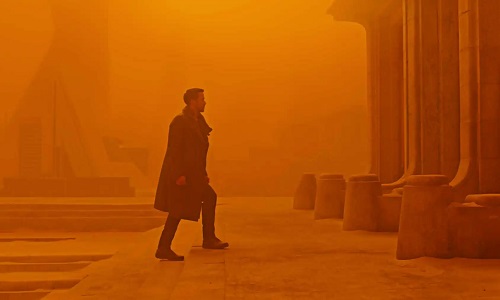
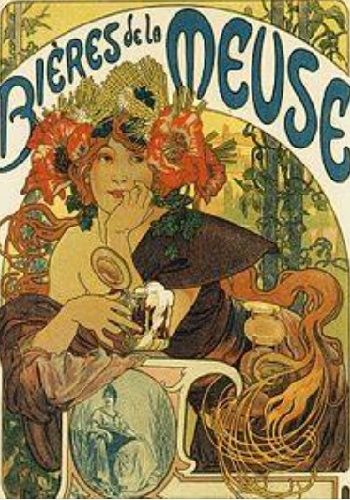 I took a spur of the moment decision to catch the Alphonse Mucha exhibition at Walker Art Gallery just before the run came to an end.
I took a spur of the moment decision to catch the Alphonse Mucha exhibition at Walker Art Gallery just before the run came to an end.
Pleased to have made the effort? Well, yes. It was pleasant to see the originals of some of those Art Nouveau posters which crop up occasionally in catelogues and were a mainstay of Athena back in the 1970s.
Did I come away with any fresh insights? No, not really.
Worth the effort on balance? Probably. It got me out of the house.
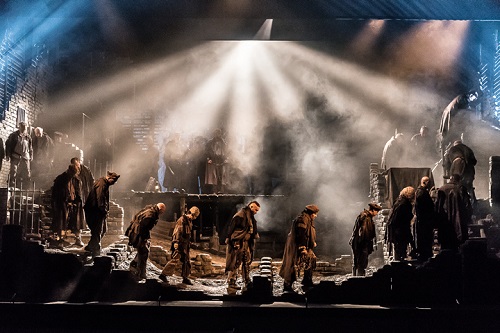 I first saw this production of Janáček's From the House of the Dead (one of the cycle of Janáček operas directed by David Pountney and shared by Welsh National Opera and Scottish Opera) on 27 November 1982 in the Liverpool Empire. Richard Armstrong directed and the cast was full of male opera singers whose names would crop up in programmes for the next two decades. Indeed Graham Clark, one of the great singing actors of our time, took part in Gurrelieder earlier this year.
I first saw this production of Janáček's From the House of the Dead (one of the cycle of Janáček operas directed by David Pountney and shared by Welsh National Opera and Scottish Opera) on 27 November 1982 in the Liverpool Empire. Richard Armstrong directed and the cast was full of male opera singers whose names would crop up in programmes for the next two decades. Indeed Graham Clark, one of the great singing actors of our time, took part in Gurrelieder earlier this year.
It was absolutely one of the great evenings of lyric theatre that I have ever attended. The tableau in the photograph to the right occurs just at the climax of the work when the political prisoner, Petrovich, is released, the symbolically healed eagle is released and the prisoners return to their labour trudging around a great circle as the orchestra blazes. Then there is a blackout.
On that evening, the silence that followed was palpable. It extended beyond the thirty second mark. And then there was a might roar of acclaim.
I've seen the work a number of times since given by the Royal College of Music, English National Opera and Opera North and the Royal Opera will give its first performances next year. I've even seen this production one further time since that performance. No other presentation has come close to that evening although they have been good in their own right. There is, however, an unfortunate tendency for current directors to want to set the work in a modern day prison with modern day surveillance equipment.
So, on the drive over to Llandudno with Roland, I was excited but not expecting too much from the evening. The cast contained a number of the best of the current UK crop of male singers. The conductor and Music Director of WNO, Tomáš Hanus, had a good reputation with Janáček's music, having been born, co-incidentally, in Brno.
I was glad that the performance would be given in English. So much of the business of the evening is taken up with prisoners giving detailed accounts of their harrowing lives before prison and the circumstances which brought them there. I've found from other shows that, even with surtitles, a performance given in English makes a much greater connection with its audience.
And thus it was.
An utterly shattering performance, unflinchingly unsentimental in its portrayal of brutal and brutalised men in prison.
And yet that finale was still a soaringly celebration of the yearing spirit to be free.
Sometimes, lightning can strike twice in the same place even if the second time is just not quite as bright as the first.